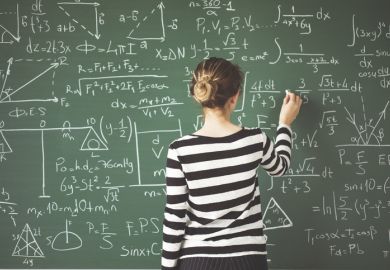The Riemann hypothesis is one of the most important problems of mathematics; it asserts that all the complex zeros of the Riemann zeta function lie on the critical line. To read this book, it is unnecessary to understand what such a statement means, but please believe that this problem really is very important. Mathematicians are right to devote their lives to it, despite the small chance of success. The million-dollar prize offered for solving it is incidental; for any mathematician good enough to have a chance of making progress, the joy of the mathematics is a far greater incentive.
Karl Sabbagh sets out to understand not mathematics, but mathematicians: why do they love mathematics so much? To understand how mathematicians differ from other people, he concentrates on those with the persistence to work on this famous intractable problem.
Sabbagh spoke to Bela Bollobas, a well-known mathematician, who then introduced him to about 20 colleagues working in this area. Sabbagh interviewed them and spent time at mathematical meetings in Palo Alto and at Oberwolfach. His conclusion is hardly surprising: apart from their mathematical ability, most mathematicians are perfectly normal; a few are a bit odd; and one or two are very odd indeed.
Sabbagh is a skilled interviewer, and the varied characters of his interviewees come through loud and clear. I know some of his subjects and enjoyed reading an accurate but warm portrayal of friends, including some of their minor foibles. I also enjoyed his vignettes of mathematicians working at Princeton University, where they were "doing one of three things - staring out of the window, writing furiously with a pencil or scribbling with chalk on a blackboard". I have always found it hard to convince my wife that staring out of the window can constitute work.
Sabbagh conveys the excitement of meetings in Palo Alto and Oberwolfach, and the tenor of the mathematical discussions is familiar. Perhaps he does not fully convey the tranquillity of Oberwolfach, where mathematicians go to work in peace, and to learn to know each other, as well as one another's mathematics.
There are features of the book I enjoyed less. With apposite quotes, Sabbagh weaves a web of mysterious abstraction. While probably what laypeople expect from mathematics, it has no resemblance to a mathematician's view of his subject. Almost all view the work they themselves are doing as simple and down-to-earth. Real joy is when one suddenly understands something in all its clarity. Again, Sabbagh gives undue prominence to obsessive personalities. This seems to have happened in the case of Louis de Branges, whose published work on Riemann's hypothesis does not justify the amount of coverage he receives.
As I said earlier, this is not a book on mathematics. Sabbagh is almost always accurate when he quotes mathematicians - though the layreader is unlikely to understand the technical bits - but when he tries to explain things himself, there are lots of errors, not always minor. But I do not think these matter much.
Bryan Birch is emeritus professor of arithmetic, University of Oxford.
Dr Riemann's Zeros: The Search for the $1 million Solution to the Greatest Problem in Mathematics
Author - Karl Sabbagh
ISBN - 1 84354 100 9
Publisher - Atlantic Books
Price - £14.99
Pages - 289
Register to continue
Why register?
- Registration is free and only takes a moment
- Once registered, you can read 3 articles a month
- Sign up for our newsletter
Subscribe
Or subscribe for unlimited access to:
- Unlimited access to news, views, insights & reviews
- Digital editions
- Digital access to THE’s university and college rankings analysis
Already registered or a current subscriber?



